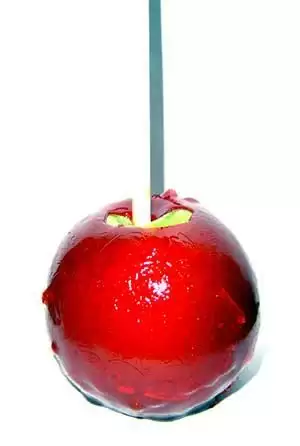- Plan your meals: It sounds simple, but it’s one that is often ignored. Sit down before you do your weekly grocery run. Know what you are going to make for each meal including snacks. Find out what’s on sale before you make your weekly meal plan. Stick to the list when you shop!
- Develop a file of dependable, go to gluten-free recipes. My people report that, when they are short on time, that’s when they are likely to make extravagant purchases. Take the thinking and guess work out of meal planning by looking through your file. You can even write down the estimated cost of the meal.
- Eat foods that are naturally gluten free found at the regular grocery store. Corn tortillas are cheap and have many uses, including for sandwich wraps. Beans are a nutrient-rich starch substitute, as are lentils.
- Eat whole foods. Whether you are gluten-free or not, it is healthier not to eat packaged, processed foods. Just because a product is marked gluten free doesn’t mean it’s good for you. Processed gluten-free products often lack nutrients. Limit these to a couple times per week or less.
- Eat foods that are in season. This means they had to travel less far to reach your grocery store, therefore they will be cheaper.
- Grow your own. Learn how to can and/or jar the extras. Live in a cool climate? Some veggies can be started inside.
- Make a soup. Soups are filling, and they are a great way to use up items in the fridge.
- Eat more vegetarian and vegan meals. Eliminating meat from two dinners per week will save you quite a bit of money.
- Eat breakfast for dinner. Make a frittata – cook 3 strips of bacon in a skillet. Set aside and drain off most of the fat. Add diced onions. Cook for 5 minutes. Add diced red pepper. Cook another 5 minutes. Add a package of thawed, drained frozen spinach. Salt and pepper to taste. Add bacon back in. Beat 5 eggs and pour them all over the filling. Top with cheese and bake at 350 for 8 – 12 minutes, or until the eggs are set. Serves 2 – 3.
- Get creative. For thickening sauces or gravy, substitute equal amounts of cornstarch for flour. Mashed potato flakes also make a great, inexpensive thickener and binder in place of breadcrumbs. Xanthan gum is used in many gluten-free recipes to serve as the “glue” to hold the product together; use 2 tsp. unflavored gelatin to replace 1tsp. xanthum gum in some recipes such as cookies. Cornmeal or crushed potato chips can be substituted when a recipe calls for a coating or crunchy topping.
- Buy in bulk. Once you found something you like, save big by buying in a large quantity. Open Original Shared Link has bulk discounts and many other ways to save you money. See their "Shop Smart & Save Money!" section on the top-right corner of their site.
- Create or join a bulk buying group. Ask around at your local support group, or link up with local folks online. If you like the same products buy a bulk order and split it.
- Cook ahead and freeze meals in individual or family-size servings. If you are not someone that cooks and you are watching your budget, it makes sense to learn.
- Invest in a good vacuum food sealer. This will help keep leftovers fresh for longer = less waste.
- Bake 1-2 times per month. Things like Pizza crusts, bread, and pie crusts will freeze well if wrapped properly.
- Make gluten-free cookie dough from scratch and freeze in a roll. Cut and bake what you need. This will curb your desire to buy an expensive mix.
- Start a gluten-free dinner swap (like a holiday cookie swap). Get a few families to cook up a large quantity of gluten-free meals and swap them for variety!
- Join a food co-op. Co-ops are groups who use their purchasing power to get lower prices.
- Make your own blend of gluten-free flours ahead of time and store in an air tight container.
- To prevent contamination, purchase extra appliances (like a toaster) from Craig’s List or Goodwill.
- Track your purchases. Seeing it in black and white can be very revealing.
- Consult with your employer’s human resources department. Do they offer a flexible spending account (FSA) benefit? These accounts hold your money pre-tax for medical purchases. If so, will the FSA recognize gluten free food (and related shipping charges)? Get it in writing! If your employer doesn’t offer this benefit, ask them to look into it. This will save you about 30%.
- If you are not using an FSA and you spend a lot of money on medical expenses, consult with your accountant. Are a portion of your gluten-free food purchases tax deductible? Shipping charges often can be reimbursed from this account, as can mileage to and from specialty stores.
-
Welcome to Celiac.com!
You have found your celiac tribe! Join us and ask questions in our forum, share your story, and connect with others.
-
Celiac.com Sponsor (A1):
Celiac.com Sponsor (A1-M):
-
Get Celiac.com Updates:Support Our Content
-
Record is Archived
This article is now archived and is closed to further replies.

By Kim Hopkins

By Kim Hopkins •
Reviewed and edited by a celiac disease expert.The Coach's Top 23 Tips for Eating Gluten Free on a Budget
User Feedback
-
Get Celiac.com Updates:Support Celiac.com:
-
About Me
Kim Hopkins is the founder of Food Sensitivity Resources. She is a licensed social worker and someone that "lives to eat" despite having multiple food challenges. Her mission is to combine her thorough, personal knowledge of food safety concerns with her lengthy counseling, training, & consulting experiences to help people live fully despite dietary restrictions. She offers personal coaching, an informative blog, the Safe Suppers Dining Club, as well as consultation for businesses & schools.
-
Celiac.com Sponsor (A17):
Celiac.com Sponsor (A17):
Celiac.com Sponsors (A17-M):
-
Related Articles
 This article appeared in the Autumn 2007 edition of Open Original Shared Link.
This article appeared in the Autumn 2007 edition of Open Original Shared Link.
Celiac.com 03/10/2008 - Virtually every parent and every professional person who works with children wants to see them learn, grow, and achieve to the greatest extent of their potential. The vast majority of these caregivers know that nutrition plays an enormous role in each child’s realizing their potential. Unfortunately, that is where agreement ends. There are almost as many perspectives on what constitutes a healthy diet as there are people on this planet. Some claim that the healthiest diet is that of a vegetarian which almost invariably leads to a heavy reliance on grains and which is devoid of vitamin B12. Others assert, based on cardiovascular disease being our number one killer that the best d...
- Read Full Article...
- 6 comments
- 11,218 views
 Celiac.com 11/21/2013 - Gluten-free food manufacturer Against the Grain, of Brattelboro Vermont, has filed a trademark infringement lawsuit against a California company doing business as Against All Grain.
Celiac.com 11/21/2013 - Gluten-free food manufacturer Against the Grain, of Brattelboro Vermont, has filed a trademark infringement lawsuit against a California company doing business as Against All Grain.
Against The Grain Gourmet Foods has filed documents in the U.S. District Court for the District of Vermont asking the court to order Against All Grain to give up all claims to the name.
The lawsuit, which was filed on Oct. 11, alleges the use of Against All Grain by the defendants "is likely to cause confusion, to cause mistake, or to deceive and therefore constitutes infringement of Plaintiff's federally registered trademark ..."
In the court documents, attorneys for Against The Grain assert that the defendants are using a website and Facebook page and have published...
- Read Full Article...
- 0 comments
- 9,716 views
 Celiac.com 10/24/2014 - Here are ten recipes for make-at-home Halloween treats that are guaranteed to put smiles on the faces of your young ones, and help you to breath a sigh of gluten-free relief.
Celiac.com 10/24/2014 - Here are ten recipes for make-at-home Halloween treats that are guaranteed to put smiles on the faces of your young ones, and help you to breath a sigh of gluten-free relief.
The recipes are gluten-free, or easily modified to be gluten-free. Remember to double-check ingredients, such as caramel (I use Kraft caramels without any issues).
Also, many of these recipes list ingredients that acre fat-free, sugar-free, low-fat, and/or low sugar. I always ignore such instructions and include full-fat, full-sugar alternatives, but prepare according to your own tastes.
Top Ten Gluten-free Halloween Treats:
Caramel Apples - Open Original Shared Link Caramel Corn - Open Original Shared Link Roasted Pumpkin Seeds - Open Original...
- Read Full Article...
- 1 comment
- 21,433 views
 Celiac.com 05/13/2015 - In addition to being a common ingredient in many commercial food products, gluten is also used in numerous medications, supplements, and vitamins, often as an inert ingredient known as an excipient.
Celiac.com 05/13/2015 - In addition to being a common ingredient in many commercial food products, gluten is also used in numerous medications, supplements, and vitamins, often as an inert ingredient known as an excipient.
Because chronic gluten-related inflammation and damage impairs absorption of nutrients, and likely causes malabsorption of oral medications, it is extremely important for people with celiac disease to review the nutrition labels of all foods and beverages, as well as the package inserts (PI) for information about gluten content.
Most oral medications depend on absorption through the small intestine via passive diffusion. GI-tract damage may shift this diffusion process into systemic circulation, which can result in increased or decreased absorption, depending on...
- Read Full Article...
- 0 comments
- 17,135 views
-
Recent Activity
-
- thejayland10 posted a topic in Gluten-Free Foods, Products, Shopping & Medications0
Suggestion for meats with no chance of cross contact?
I am taking my celiac a lot more seriously now and want to avoid chances of cross contact, does anyone have any good ground turkey brands or chicken brands they can recommend ? -
- dixonpete commented on dixonpete's blog entry in Pete Dixon1
Father, it's been some time since my last hookworm larvae innoculation
Another concern I had with my cockup with the bandage was with the larvae sitting in the gauze potentially drying out and dying while I futzed around. Seems things are ok. I've been having tingles under the stretch bandage I used to secure placement. I'll know for sure in a couple of days when I see the entry wounds. -
- trents replied to CiCi1021's topic in Gluten-Free Foods, Products, Shopping & Medications3
R there any organizations that help with financial costs of food?
Moms Across America for one. Here's the article that kicked off long thread and more than one thread on Celiac.com this past summer: Our community feels the testing needs to be tightened up. As of now, GFCO allows food companies to do self-testing and self-reporting. Testing is also done We strongly believe testing needs to be done more frequently... -
- CiCi1021 replied to CiCi1021's topic in Gluten-Free Foods, Products, Shopping & Medications3
R there any organizations that help with financial costs of food?
What celiac watchdog groups have looked into what you mentioned? Thanks. -
- trents replied to CiCi1021's topic in Gluten-Free Foods, Products, Shopping & Medications3
R there any organizations that help with financial costs of food?
Welcome to the forum, @CiCi1021! Well, to begin with, most of us have found it isn't necessary to buy a lot of specifically labeled "gluten free" or "Certified Gluten Free" prepackaged food items as long as you are willing and able to cook from scratch. This is especially true since testing by celiac watchdog groups has cast some serious doubt on how...
-









Recommended Comments